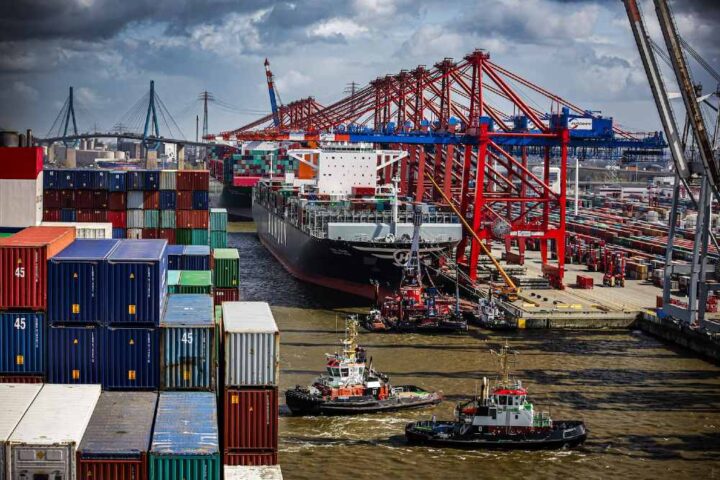Freight Broker Insights: Building a Career in Today’s Business Landscape
A job in freight brokerage exposes one to a dynamic and complex environment that is essential to the global supply chain. With the constant ebb and flow of goods across borders, the demand for skilled and strategic freight brokers is on the rise.
In this blog post, we will delve into the insights that can help aspiring professionals not only understand the intricacies of the freight industry but also carve a successful career path in this thriving sector.

The Foundation of Freight Brokering: Understanding the Basics
At the core of the freight brokering profession lies a fundamental understanding of the basics, a knowledge bedrock that serves as the compass guiding professionals through the intricate maze of logistics. Central to this foundation is the pivotal role that freight brokers play as intermediaries, facilitating the movement of goods by forging connections between shippers and carriers.
Mastery of this art requires a nuanced comprehension of transportation logistics, market trends, and legal intricacies. Freight brokers are not merely facilitators of transactions; they are orchestrators of a delicate ballet, negotiating rates, managing paperwork, and ensuring that every shipment complies with the labyrinthine web of regulations.
Aspiring professionals keen on navigating the complex world of freight brokering must, therefore, embrace this foundational knowledge, recognizing it as the cornerstone upon which a successful and resilient career is built.
Online Education: The Gateway to Freight Broker Expertise
In today’s digital age, the pursuit of knowledge is not bound by traditional classroom settings. Online education has emerged as a powerful gateway for individuals looking to acquire expertise in various domains, and freight brokering is no exception.
Enrolling in an online training program can offer aspiring freight brokers the flexibility to learn at their own pace while gaining insights from industry experts. Whether it’s understanding the intricacies of freight pricing or mastering the art of negotiation, an online training program provides a convenient and accessible avenue for skill development.
Navigating the Regulatory Landscape: Compliance is Key
One of the critical aspects of a freight broker’s role is navigating the intricate web of regulations governing the transportation industry. From licensing requirements to compliance with safety standards, understanding and adhering to regulatory frameworks is non-negotiable.
A successful freight broker stays abreast of changes in legislation, ensuring that their operations align with the ever-evolving legal landscape. This commitment to compliance not only mitigates risks but also fosters trust with clients and carriers.
Building Strong Relationships: The Heart of Freight Brokering Success
Beyond the technical aspects of the job, successful freight brokers understand the importance of building and maintaining strong relationships. Cultivating trust with both shippers and carriers is essential for long-term success in the industry.
This involves effective communication, transparent business practices, and a commitment to delivering on promises. A broker’s ability to foster collaboration and create mutually beneficial partnerships can elevate them from being a transactional intermediary to a trusted logistics partner.
Technological Advancements: Navigating the Digital Landscape
As the business landscape continues to evolve, technology plays an increasingly pivotal role in the freight brokerage sector. From advanced tracking systems to digital freight matching platforms, embracing technological advancements is key to staying competitive.
Successful brokers leverage data analytics, automation, and other digital tools to streamline operations, enhance efficiency, and provide real-time visibility into the movement of goods. Embracing these technological solutions not only improves operational efficiency but also positions a freight broker as an innovator in the field.
Adaptability: Thriving in a Dynamic Industry
The freight industry is inherently dynamic, with external factors such as economic shifts, geopolitical events, and global crises influencing its trajectory. A successful freight broker exhibits adaptability and resilience in the face of uncertainty.
This involves staying informed about industry trends, anticipating challenges, and proactively adjusting strategies to navigate changing market conditions. The ability to pivot and adapt to emerging trends is a hallmark of a successful career in freight brokering.
The Future of Freight Brokering: Opportunities on the Horizon
As we look to the future, the outlook for freight brokering remains promising. The increasing complexity of global supply chains, coupled with the growing demand for efficient logistics solutions, presents a myriad of opportunities for skilled professionals in this field.
Whether it’s leveraging emerging technologies, staying ahead of regulatory changes, or fostering strong industry relationships, the path to success in freight brokering is paved with continuous learning and strategic agility.
In conclusion, building a successful career as a freight broker involves a combination of foundational knowledge, continuous learning, relationship-building skills, and adaptability. By understanding the basics, embracing online education, navigating regulatory landscapes, fostering strong relationships, staying abreast of technological advancements, and remaining adaptable, aspiring freight brokers can navigate the complexities of the industry with confidence.
As the global supply chain continues to evolve, the role of the freight broker remains indispensable, making it an exciting and rewarding career path for those with a passion for logistics and a commitment to excellence.


